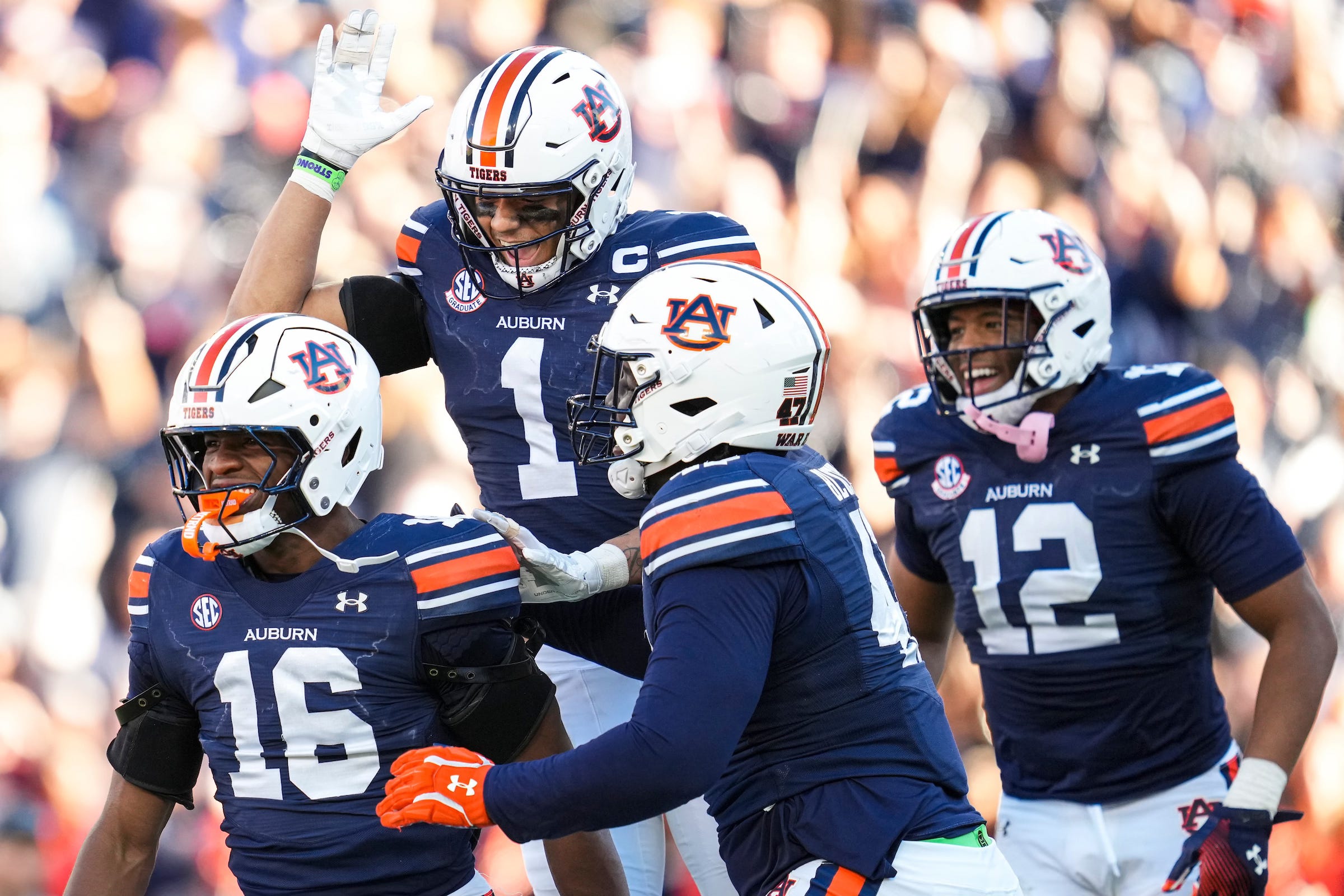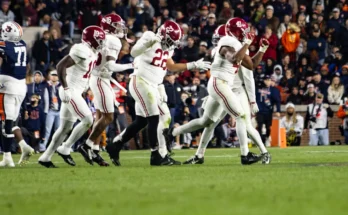Auburn Football’s Historic Drive to Return to Dominance and Contend for SEC Championships and the College Football Playoff Again
Auburn University’s football program has long stood among the most storied in college football, boasting a rich history filled with iconic moments, legendary players, and seasons that captivated fans across the nation. Located in the heart of the Southeastern Conference (SEC), Auburn has often found itself competing at the highest levels of college football. The expectation surrounding the Tigers has never been to simply be competitive—it has always been about winning championships. SEC titles, national championships, and, more recently, College Football Playoff (CFP) berths have been considered the benchmark of success on The Plains.
This elevated standard is not just a product of tradition or fan fervor; it’s rooted in tangible past achievements and the relentless passion of Auburn’s supporters, administrators, and alumni. From Pat Dye’s era in the 1980s to the magical 2010 national championship run led by Cam Newton and Gene Chizik, and even the heart-pounding 2013 season under Gus Malzahn that ended just seconds short of a national title, Auburn has shown repeatedly that it can rise to the top when things align correctly.
But in recent years, the program has struggled to maintain that elite consistency. Coaching changes, recruiting battles, and fierce SEC competition have tested Auburn’s ability to remain in the upper echelon. However, the expectation remains unchanged. Auburn fans, stakeholders, and the broader college football community still view the Tigers as a team that should not only compete for SEC championships but also regularly challenge for a spot in the College Football Playoff.
That expectation brings with it immense pressure but also opportunity. With the expanded playoff format on the horizon and the continued growth of Auburn’s athletic facilities, resources, and recruiting reach, the stage is set for a potential resurgence.
One of the primary reasons Auburn is held to such a high standard is its unique position in college football’s most competitive conference. The SEC is a crucible that forges champions. Competing in the same division as perennial powerhouses like Alabama and LSU, and now with the addition of Oklahoma and Texas to the conference, Auburn’s path to success is among the most difficult in the sport. Yet, this is also what makes success so meaningful. Winning in the SEC carries more weight. When Auburn wins, it is seen not just as a victory over another team, but as a triumph over the toughest gauntlet in college athletics.
This difficulty has not deterred expectations—it has only fueled them. The 2010 and 2013 seasons are prime examples of how quickly Auburn can rise when the right pieces are in place. In 2010, the Tigers were powered by one of the greatest individual seasons in college football history, as quarterback Cam Newton led the team to a perfect season and a national championship. Just three years later, under first-year head coach Gus Malzahn, Auburn rebounded from a disastrous 3–9 season to come within seconds of winning another national title. Those seasons serve as proof that Auburn can achieve greatness even in a challenging environment, reinforcing the belief that a return to glory is never out of reach.
The expectations surrounding Auburn are also deeply embedded in the culture of the program. Auburn’s “family” atmosphere is more than just a slogan—it’s a guiding principle. The passion of the fans, the tradition of the Tiger Walk, the roar of Jordan-Hare Stadium, and the commitment of the Auburn family create a unique environment. That culture demands excellence, and in turn, it fosters it. Recruits are drawn to the intensity and tradition. Coaches understand that the expectations are immense but also come with unwavering support.
Coaching, of course, is central to meeting these lofty goals. In recent years, Auburn has cycled through several head coaches in search of the right leader to bring consistent success. After the highs of Malzahn’s early years, inconsistency set in, leading to his dismissal in 2020. Bryan Harsin’s brief tenure failed to generate momentum, and his departure opened the door for the hiring of Hugh Freeze, a coach with proven SEC experience and a reputation for offensive innovation. Freeze’s arrival signals a renewed commitment to competing at the highest level, and his early moves—especially in recruiting and staff assembly—have generated cautious optimism among the Auburn faithful.
Recruiting is another crucial area that determines a program’s trajectory, and it remains one of the most competitive aspects of SEC football. Auburn, with its tradition and facilities, should be a perennial top-10 recruiting school. In some years, the Tigers have reached that level, bringing in blue-chip prospects who went on to star in the NFL. However, in other years, Auburn has struggled to keep pace with rivals like Alabama and Georgia. To meet the expectations of contending for the SEC and making the CFP, Auburn must recruit at an elite level consistently. This involves not only landing five-star athletes but also developing talent and building depth across all positions.
Auburn’s administration understands this dynamic. Investments in facilities, such as the new football operations center, are aimed at providing players and coaches with the resources necessary to compete at a championship level. These upgrades reflect the broader trend in college football where success off the field—in terms of infrastructure, support staff, and nutrition—translates into victories on Saturdays. Auburn is positioning itself to be competitive in all these areas, which is essential given the evolving landscape of college athletics.
Another factor shaping expectations is the expansion of the College Football Playoff. Moving from a four-team to a twelve-team format changes the calculus for programs like Auburn. In the previous system, even a one-loss SEC team could be left out of the playoff due to the limited spots. The new format gives Auburn more room to maneuver. A strong season, even with one or two losses, could still result in a playoff berth. This enhances the urgency and realism of Auburn’s aspirations. With a more inclusive playoff structure, the Tigers can leverage their competitive schedule as a strength, knowing that quality wins will carry more weight.
Despite the challenges, Auburn remains one of the most compelling programs in the nation. Its highs are higher than most, and even in down years, the potential for a turnaround is always just around the corner. The expectation to contend is not a burden—it’s a standard that has been earned over decades of thrilling victories, courageous performances, and a loyal fan base that demands nothing less than excellence.
Looking ahead, the future of Auburn football hinges on several key areas: strong leadership from the head coach, consistent elite-level recruiting, effective player development, and navigating the SEC landscape with smart game planning and strategic roster management. If these elements align, Auburn is more than capable of returning to championship contention.
Ultimately, Auburn is a program that thrives on belief. The belief that it can beat anyone, at any time. The belief that championships are not a dream, but a goal. The belief that when Jordan-Hare is rocking and the team is clicking, there are few atmospheres in the sport that can match it. That belief fuels the expectations and will continue to drive Auburn football as it seeks to return to the pinnacle of college football.
In conclusion, the expectation for Auburn football has always been and will continue to be championship contention. Whether it’s the SEC or the College Football Playoff, Auburn fans and stakeholders measure success by titles. The road is never easy, and the competition is fierce, but the Tigers have shown they can rise to meet the challenge. With the right leadership, strong recruiting, and the unwavering support of the Auburn family, the dream of returning to national prominence is not just possible—it’s expected.



